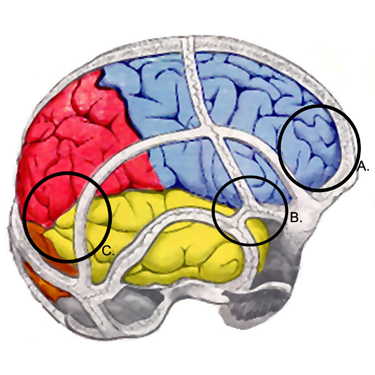Summary
Definition
History and exam
Key diagnostic factors
- history of blunt trauma to the head or acceleration/deceleration forces
- Glasgow Coma Scale score of 13-15 thirty minutes or later post-injury and transient neurological abnormalities
- risk factors
Other diagnostic factors
- headache
- disturbed gait/balance or dizziness
- depersonalisation
- fatigue
- memory difficulties or amnesia
- vomiting/nausea
- neck pain
- normal neurological examination
- abnormalities on cognitive assessment
Diagnostic investigations
Investigations to consider
- CT head
- MRI head
- clotting screen
- skull x-ray
- alcohol screen (breath and blood)
Treatment algorithm
Contributors
Expert advisers
Matthew Jones, MD, FRCP
Consultant Neurologist
Greater Manchester Neurosciences Centre
Salford Royal Foundation Trust
Manchester
UK
Biography
MJ is an honorary senior lecturer at the University of Manchester.
Disclosures
MJ is the chair of the Association of British Neurologists Education Committee (unpaid position). MJ is a faculty member of an MRCP revision course. MJ has received honoraria from Eisai for educational talks.
Acknowledgements
BMJ Best Practice would like to gratefully acknowledge the previous team of expert contributors, whose work is retained in parts of the content:
Luke C. Henry, PhD
Assistant Professor
Department of Neurological Surgery
Senior Clinical Neuropsychologist
University of Pittsburgh
Pittsburgh
PA
LCH declares that he has no competing interests.
Maria Twichell, MD
Assistant Clinical Professor
Director
General Rehabilitation Unit
UPMC Physical Medicine and Rehabilitation
University of Pittsburgh Medical Center
Pittsburgh
PA
MT declares that she has no competing interests.
Peer reviewers
Alan Carson, MB ChB, MPhil, MD, FRCPsych, FRCP
Consultant Neuropsychiatrist
Honorary Professor of Neuropsychiatry
University of Edinburgh
Edinburgh
UK
Disclosures
AC is treasurer to the Functional Neurological Disorders Society. He is associate editor of the Journal of Neurology, Neurosurgery and Psychiatry, and has contributed to the Scottish Intercollegiate Guidelines Network concussion guidelines. He developed a free-access, not-for-profit self-help website for patients after mild brain injury (http://www.headinjurysymptoms.org). He has received travel and accommodation expenses, but not payments, from professional organisations for speaking at their educational meetings including talks on concussion and brain injury. He gives independent testimony in court on a range of neuropsychiatric topics including brain injury. AC contributed content to a concussion application still in development.
Use of this content is subject to our disclaimer
